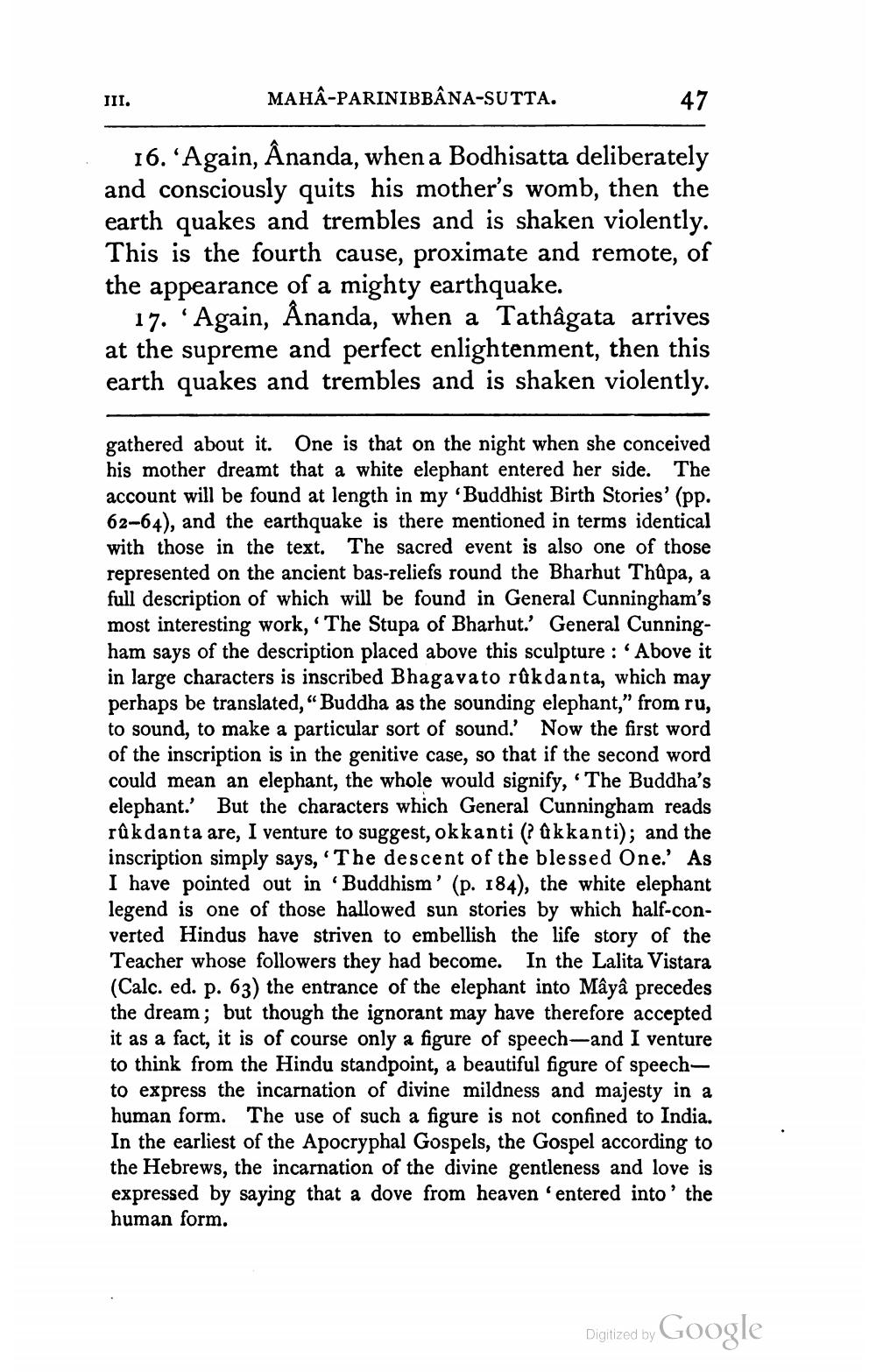________________
III.
MAHẬ-PARINIBBÂNA-SUTTA.
47
16. 'Again, Ananda, when a Bodhisatta deliberately and consciously quits his mother's womb, then the earth quakes and trembles and is shaken violently. This is the fourth cause, proximate and remote, of the appearance of a mighty earthquake.
17. 'Again, Ânanda, when a Tathâgata arrives at the supreme and perfect enlightenment, then this earth quakes and trembles and is shaken violently.
gathered about it. One is that on the night when she conceived his mother dreamt that a white elephant entered her side. The account will be found at length in my 'Buddhist Birth Stories' (pp. 62-64), and the earthquake is there mentioned in terms identical with those in the text. The sacred event is also one of those represented on the ancient bas-reliefs round the Bharhut Thûpa, a full description of which will be found in General Cunningham's most interesting work,'The Stupa of Bharhut.' General Cunningham says of the description placed above this sculpture : 'Above it in large characters is inscribed Bhagavato rûkdanta, which may perhaps be translated, "Buddha as the sounding elephant," from ru, to sound, to make a particular sort of sound.' Now the first word of the inscription is in the genitive case, so that if the second word could mean an elephant, the whole would signify, The Buddha's elephant. But the characters which General Cunningham reads rûkdanta are, I venture to suggest, okkanti (? akkanti); and the inscription simply says, 'The descent of the blessed One. As I have pointed out in 'Buddhism' (p. 184), the white elephant legend is one of those hallowed sun stories by which half-converted Hindus have striven to embellish the life story of the Teacher whose followers they had become. In the Lalita Vistara (Calc. ed. p. 63) the entrance of the elephant into Mâyâ precedes the dream; but though the ignorant may have therefore accepted it as a fact, it is of course only a figure of speech-and I venture to think from the Hindu standpoint, a beautiful figure of speechto express the incarnation of divine mildness and majesty in a human form. The use of such a figure is not confined to India. In the earliest of the Apocryphal Gospels, the Gospel according to the Hebrews, the incarnation of the divine gentleness and love is expressed by saying that a dove from heaven.entered into the human form.
Digitized by Google




